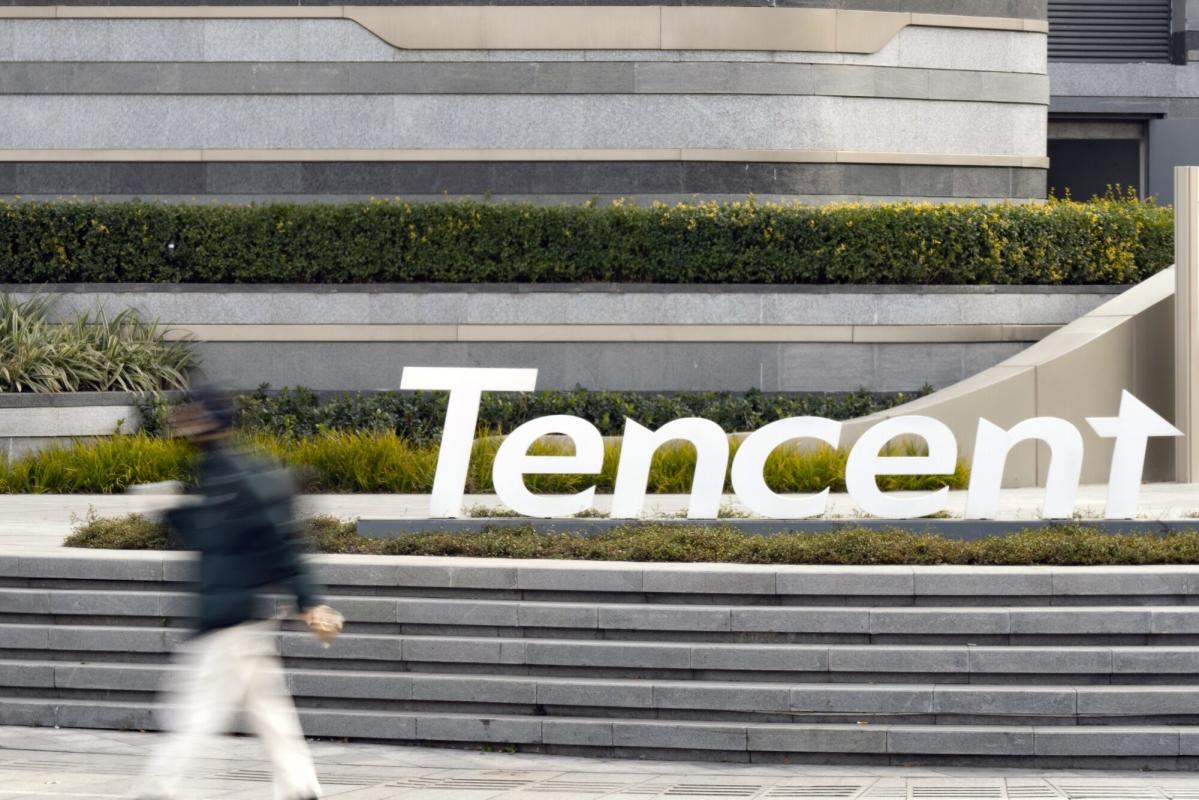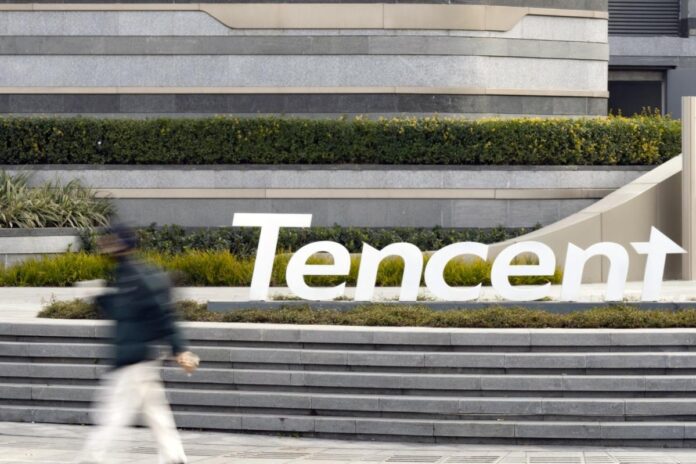## Big Tech Meets Hollywood: Is Tencent’s Skydance Investment Too Powerful? Hollywood is known for its dazzling lights and blockbuster deals, but lately, a new kind of player has entered the scene: Big Tech. Tencent, the Chinese tech giant behind WeChat and gaming behemoth Riot Games, is making waves with its significant investment in Skydance Media, a powerful player in the film and television world. This move, however, has sparked alarm bells in Washington, with lawmakers raising concerns about the growing influence of foreign entities on American entertainment. Is this a win-win for both industries, or is it a red flag for national security? We delve into the details of this high-stakes deal and explore the potential ramifications for Hollywood and beyond.
Tencent’s Stake in Paramount-Skydance: A Hollywood Power Play Under Scrutiny
Congressional Concerns and National Security Implications

Tencent’s proposed minority stake in the newly merged Paramount-Skydance Media entity has drawn fire from prominent members of Congress who cite national security concerns. Congressman John Moolenaar, chairman of the House China Select Committee, issued a public statement expressing his alarm, calling for a thorough review by the Treasury Department’s Committee on Foreign Investment in the US (CFIUS). He stated, “We’ve heard from multiple Hollywood executives about rampant self-censorship designed to curry favor with the Chinese Communist Party. Given that just this month, the Department of Defense designated Tencent as a Chinese military company, CFIUS should closely scrutinize the proposed merger to ensure the Chinese Communist Party is not further solidifying its hold on the American entertainment industry.”
Senator Mark Warner, a Virginia Democrat and vice chairman of the Senate’s Select Committee on Intelligence, echoed Moolenaar’s concerns, suggesting bipartisan support for further inquiry. He told Morningpicker, “The potential for a PRC national champion like Tencent to hold a significant financial stake in a major US content conglomerate raises serious concerns and should absolutely prompt CFIUS scrutiny.” Tencent, a technology and entertainment giant, will hold a less-than 5% stake in the merged entity and will be a passive, nonvoting investor, according to a source familiar with the deal.
FCC Review and Potential Roadblocks
The merger’s fate hinges on approval from the Federal Communications Commission (FCC), which must greenlight the transfer of Paramount’s broadcast licenses. Paramount owns a significant portfolio of broadcast assets, including the CBS network, several television stations, and well-known cable channels like MTV. FCC member Brendan Carr, a known critic of China’s media influence, has indicated that the agency will not shy away from a national security review. Speaking to reporters, Carr stated, “We’re going to look at all the issues that have been raised. At this point, sort of nothing is off the table.”
Carr’s skepticism towards the deal stems from his history of criticizing Paramount’s media coverage, particularly CBS. He has publicly questioned the network’s handling of a Kamala Harris interview, suggesting it could influence how the FCC evaluates the transaction. The FCC’s public comment docket also reflects concerns raised by media watchdog groups like the Center for American Rights. The group, known for its past FCC complaints regarding CBS programming, urged the agency to take Tencent’s designation as a Chinese military company seriously. They called on the FCC to consult with CFIUS and other relevant agencies, such as the Justice Department’s Team Telecom coalition, to conduct a thorough review.
Tencent’s Stake: A Passive Role or a Trojan Horse?
While Tencent’s stake in the merged entity will be less than 5% and nonvoting, analysts and lawmakers are questioning the potential for indirect influence. Tencent’s global ambitions in the entertainment industry have been well-documented, and this deal could be a strategic move to gain deeper inroads into the lucrative American market.
Concerns about censorship and self-censoring to appease the Chinese government have also been raised. The claim is that Tencent, with ties to the Chinese military and government, could pressure Paramount-Skydance to produce content that aligns with Beijing’s interests. This could potentially lead to a shift in storytelling and representation in Hollywood productions.
Tencent has consistently denied any intention to exert control over content decisions. However, the lack of transparency surrounding the details of the deal has fueled speculation and raised red flags for those concerned about the implications for artistic freedom and intellectual property.
Legal Challenges and Market Impact
Investor Mario Gabelli has filed a lawsuit in a Delaware court demanding greater transparency regarding the merger terms. This legal challenge adds another layer of complexity to the deal, highlighting the scrutiny facing both Tencent and Paramount-Skydance.
Analysts remain divided on the likelihood of FCC approval. Some predict that Paramount’s broadcast license holdings won’t meet the agency’s media-ownership threshold for in-depth scrutiny, paving the way for approval. Others suggest that the national security concerns and political pressure could lead to a more rigorous review and potentially even a rejection.
The outcome of this deal has far-reaching implications for the media landscape. A successful merger could set a precedent for future foreign investment in Hollywood, potentially leading to increased Chinese influence over American content. However, a rejection or significant concessions from Tencent could signal a shift in US policy towards foreign investment in strategically sensitive sectors.
Conclusion
Tencent’s deepening involvement in Hollywood, through its significant stake in Skydance Media’s parent company, has sparked concerns among lawmakers about potential foreign influence in the entertainment industry. The article highlights how this investment, which gives Tencent a controlling interest in Skydance, raises questions about content control and the potential for Beijing to leverage its influence on American audiences. Critics argue that this move could compromise creative independence and potentially spread Chinese propaganda, while proponents emphasize the economic benefits and opportunities for collaboration between the two countries.

